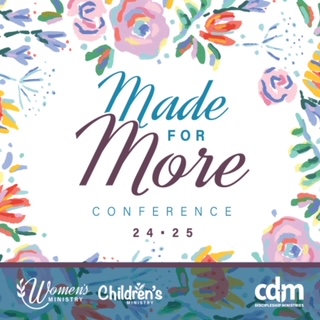
Encourage-[en-kur-ij] to inspire with courage, spirit, or confidence.
The enCourage Blog is weekly dose of encouragement in a world that is often filled with bad news. We offer life-giving entries each Monday and Thursday written by gifted women from across our denomination, the Presbyterian Church in America (PCA). You can subscribe below to have them delivered to your inbox. With hundreds of blog pieces, you can search on a variety of topics in the search bar above to read and share with friends. Christina Fox, a gifted author, serves as our enCourage General Editor. If you are interested in submitting a piece, you can contact her at cfox@pcanet.org.
Sign up for our weekly enCourage blog:
Aging Graciously in an Anti-Aging Culture
ELIZABETH TURNAGE | CONTRIBUTOR Gray hair is a crown of glory; it is gained in a righteous life. (Prov. 16:31) Geriatrician Louise Aronson believes there is a “disconnect between the reality of old age and our beliefs about it.”[i] She describes society’s negative view of old age: “to look at old age and see only bodily decline, forgetting that inside the body is a fellow human being.”[ii] Aronson invites us to foster a worldview toward older adults that says: “We still see you, and we still like, love, respect, admire, and are inspired by you, both for who you were and who you are….”[iii] When older adults believe that they are seen, known, and loved, they live fully and graciously as they age. Aronson is not a Christian, and yet, her words challenge Christians to consider what it means to age graciously in an anti-aging culture. To do so, we must consider a biblical view of aging and God’s call to both the young and the old to live all of our days with the hope of glory. A Biblical View of Aging: Normalcy, Losses, and Benefits of Aging In the Bible, aging is assumed: “Aging and dying were considered to be natural, expected, even providential processes that were ordained and guided by God rather than discrete chronological stages of human development.”[iv] Genesis 15:15 states that Abraham would be “buried in a good old age.” Psalm 90:10 proclaims that our lives are fleeting: “The years of our life are seventy, or even by reason of strength eighty . . . they are soon gone, and we fly away.” For this reason, we should “number our days” (v. 12), making the most of each one. While the Bible assumes that aging is natural, it doesn’t glamorize it. Ecclesiastes 12 portrays the losses of aging graphically, even dismally. Using poetic language and imagery, the author details many casualties of aging, including weak hands trembling, teeth falling out, eyesight dimming, fears worsening, and mourning and grief increasing (vv. 3, 5). Despite this suffering and loss, aging does have benefits, according to Scripture. For example, it can lead us to anticipate our heavenly dwelling more eagerly: “We know that if the tent that is our earthly home is destroyed, we have a building from God, a house not made with hands, eternal in the heavens” (2 Cor. 5:1). In the Bible, aging also brings honor—it is an honor to be aged, and the aged are to be honored. The fifth commandment promises that honoring your father and mother leads to a lengthy life (see Ex. 20:12). Members of the church are exhorted to encourage older men and women and to honor widows (see 1 Tim. 5:1–3). Jesus rebukes the Pharisees for failing to care well for their parents (see Mark 7:9–13). According to the Bible, ageism is unacceptable. In a world that urges us to resist aging, we must recapture the biblical view of the subject. As we do so, we will learn how to number our days, that we may gain a heart of wisdom...
Why Use a Physical Bible
.TARA GIBBS | CONTRIBUTOR Last fall, I received a text with nothing but a photo of the original, hardback, black and white English Standard Version Bible from my 23-year-old son. I replied with a single question mark. His response made me smile, “Mom, we are at Goodwill, and I saw your Bible.” Why would this text have such an effect on me? I have made more parenting mistakes than I can number, but that day, I stopped to give thanks to God that when my son sees a generic, hardback ESV Bible at Goodwill, he associates it with the impact and reality of God’s living Word in his formative years. What a picture of God’s grace. And what a reminder of the importance of God’s Word in physical form. The God who made us as physical beings allows us to touch, feel, and see His covenant love through physical words on paper. In this day where Bible access is incredibly convenient on our ever-present phones, it is easy to neglect the use of our physical Bibles. I confess my own struggle as a daily Bible-reading plan conveniently populates my inbox with clickable emails. I open the email, and a link leads me straight to a read-aloud plan with a devotional by Don Carson. What could be more convenient? I am a fan of using the audio feature to help me get through my longer Bible-readings. But there is something very personal and irreplaceable about picking up my own personal physical Bible, touching the pages, and hearing God’s faithfulness through these words for the last five decades. “I read this promise, during this struggle, on this page in the upper, right-hand corner.” I open my Bible to a passage I memorized with my children, and pictures of God’s goodness flood my mind. There is no replacement for regular use of a physical Bible. Here are a few places and ways we can do so: Encouragement to Use a Physical Bible Use a physical Bible in your personal devotional reading whenever possible. Reading comprehension, retention, and multi-sensory connection to the reality of God’s love and presence happen in a deeper way with our physical Bibles...
Created for a Purpose
INGRAM LINK |GUEST In 2006, I had a house full of children (11, 9, 7, and 1). My husband had a struggling business, and I was doing a variety of things to contribute financially. We enjoyed close friendships and were involved in our church and our community. Our families did not live close by, but those relationships were strong, and we spent vacations with our extended families on both sides. In the midst of what was normal life, my oldest daughter struggled. She was smart, kind, and had talents and abilities, but she often found herself on the outer circle of different friend groups. Socially, there was an immense push to be on a certain level soccer team, dance team, gymnastics team, etc. There was also social pressure to pull children out of regular classes and be placed in enrichment classes. I saw her and the girls around her striving to be identified by what they did, rather than who they were. My mom is an artist, and she always encouraged us to be creative. As a result, I was the mom that let the kids use glitter and help me cook in the kitchen. To remind my daughter and other girls her age that they were created by God in His image for His purposes, I reached out to some other creative moms to offer a weeklong creative arts camp for girls in my home. Throughout the week, we focused on 1 Timothy 4:12, “Don’t let anyone look down on you because you are young, but set an example for the believers in speech, in conduct, in love, in faith and in purity.” My intention behind the camp was to use hands on, tangible ways to show the girls what it means to be wonderfully made by the God of the universe. The girls cooked a meal, sewed, painted, created a photo scrap book, and made a nativity sculpture. They had fun and they loved being together, creating, laughing, and hearing truths from God’s Word woven throughout the activities...
Four Things to Consider When Selecting A Bible Study
SHEA PATRICK | CONTRIBUTOR Does your women’s ministry have big plans for Bible studies this fall? The primary way that God works in our hearts to make us more like Jesus is through His Word, and digging into God’s Word in community can show us even more of the beauty and truth of God. Hearing the insights of our sisters studying alongside us gives us a richer view of Scripture. A blog I read recently said, “Studying Scripture outside of the influence of God’s people often leaves us building shanty homes next to the beautiful, unshakeable house of God.”[1] Deep Bible study alongside our sisters in Christ can lead to heart transformation. One fall, ladies at a church I had recently started attending decided that the women needed to do a Bible Study. Past studies were an inconsistent hodgepodge of choices that didn’t seem to have much thought or intention put into them. It had been a while since the church had hosted a Bible study as part of their women’s ministry, so the woman in charge was unsure where to start. She dialed directory assistance and asked for the PCA, and someone in the CE&P office (now CDM) sent her videos and a study. This material was deep and rich in gospel content and was a blessing to the women who participated. While the Lord providentially blessed her dial-up request for material, I think we can take intentional steps in discerning quality studies for the women in our church. Bible Studies that Serve We should thoughtfully and prayerfully consider what we are studying with our women. Not all studies are created equal. I too have felt the allure of the most popular, best-advertised Bible studies or those from celebrated authors. An essential question to begin is: what will best serve the women of the church?...






